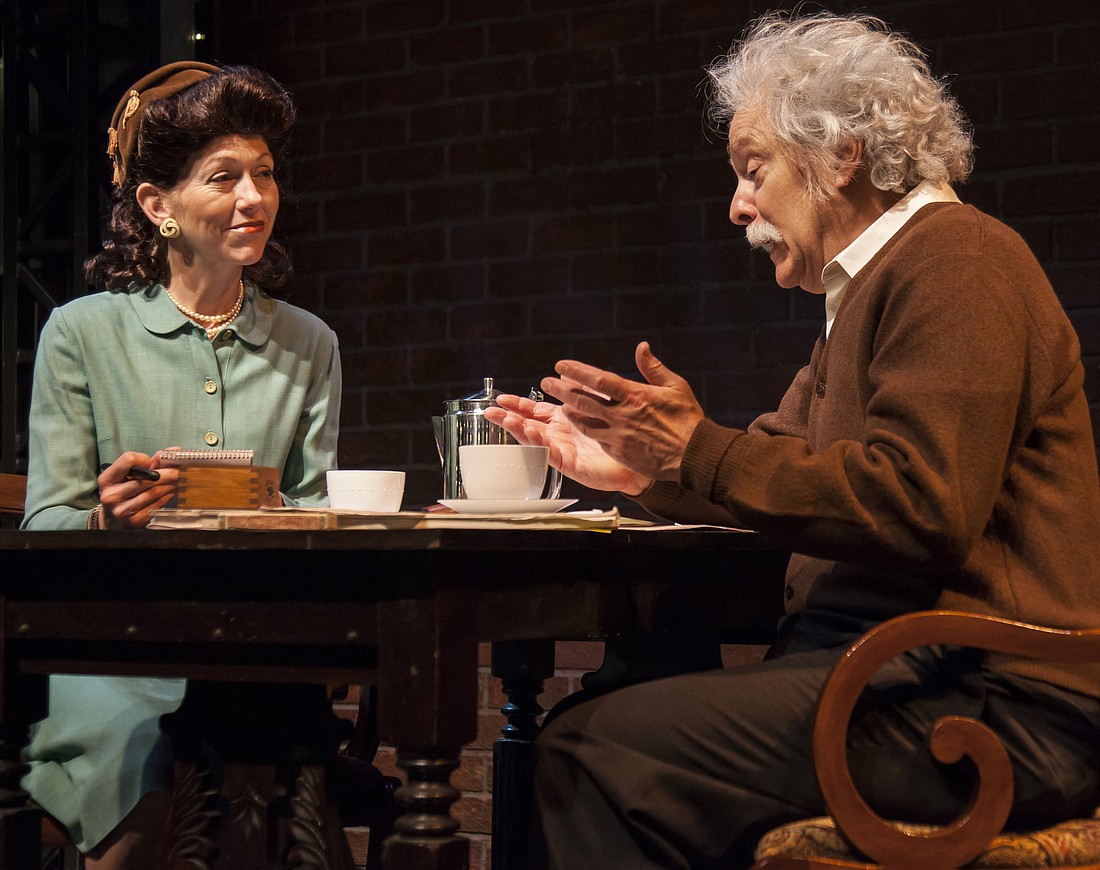- November 19, 2025
-
-
Loading

Mark St. Germain’s “Relativity” opens later this week at Florida Studio Theatre. The play’s all about Albert Einstein. But the playwright’s more interested in the man than the math. Something about him just didn’t add up.
The public image: “Einstein was far more complicated than the beloved physicist who stuck his tongue out at the camera,” St. Germain says. “The man was contradictory in so many ways. He was a humanitarian who had difficulty with his own personal relationships and a pacifist who urged President Roosevelt to build the bomb.”
St. Germain discovered Einstein’s most glaring contradiction in the course of his relentless research.
A forgotten historical tidbit caught his eye: the daughter almost nobody remembers.
Lieserl Einstein was born out of wedlock in January 1902 to Mileva Maric, the woman who would become his first wife.
Einstein gave his daughter away when she was 2 — and never mentioned her in public. Lieserl would remain a secret until Einstein’s love letters to Mileva were discovered in 1986.
“The fact of Lieserl’s existence was really the seed of the play,” St. Germain says. He adds that the inconvenient child puts the conventional narrative of Einstein’s life into question.
“We think we know who Einstein was,” he says. “We really don’t.”
The mainstream historical consensus is that Lieserl died of scarlet fever in September 1903. Some historians believe she lived — most prominently, Michelle Zackheim, the author of “Einstein’s Daughter.”
St. Germain agrees with them. Why?
“Logic and historical fact,” he says. “In 1937, a German woman living in London claimed to be Einstein’s daughter. His reaction was not to admit that Lieserl was dead, but to hire a private investigator. Why would Einstein do that if he was certain she wasn’t alive?”
So, if Lieserl didn’t die in infancy, where did she live out her life? Speculations range from sunny California to a convent. But the playwright is more interested in Einstein’s motives. Why did he give her up? Did he fear an illegitimate child would kill his chances at getting a job as a patent clerk? Did he calculate that raising a child would interfere with his “thought experiments?” Children can be distracting after all …
Whatever his reasons, Einstein made his decision — though he never wrote down why.
“Einstein’s choice raises a lot of questions,” St. Germain says. “It led me to explore the question of what makes a great man. Does a great man need to be good? Does being good get in the way of becoming great?”
The playwright would love to get in a time machine and ask Einstein these questions directly. He can’t, so he conjures up a reporter who does.
Jason Cannon, the play’s director, has been deeply involved with the play’s development since FST first commissioned it just over a year ago.
“It’s one of Mark’s classic what-if scenarios,” he says. “‘Freud’s Last Session’ was the most recent example. What if Sigmund Freud analyzed C.S. Lewis? How would Einstein explain his decision to give his daughter away? Mark imagines the answers to his own questions, and audiences find it fascinating.”
Cannon adds that there’s more than a good imagination responsible. St. Germain’s answers are fascinating because they’re convincing. Credit for that goes to the playwright’s countless hours of research.
“Thanks to Mark’s deep research, he really captures the voices of these historical figures,” Cannon says. “His writing reminds me of Shakespeare’s history plays. He uses historical figures and events to explore modern ideas and passions.”
So, who’s the real Einstein? A secular saint — the wild-haired, whimsical father of relativity? Or a coldly calculating genius who put equations ahead of flesh and blood?
The answer may be all or none of the above. It’s a question of relativity.
“As a theatrical storyteller, I perceive history as competing narratives,” Cannon says. “History isn’t clean. Like drama, it has rough edges. One person’s hero is another person’s villain, depending on where you stand.”
St. Germain agrees.
“Two people can witness an event from different points of view and emerge with two separate impressions,” he says. “That’s basic relativity theory, and it’s the theme of the play. See it, and decide for yourself.”